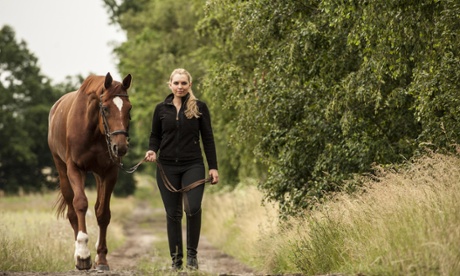
Not so long ago, if you had anxiety or depression, cognitive behavioural therapy (CBT) was the answer. It was everywhere. Now mindfulness is even more ubiquitous.
And there is indeed much scientific evidence for its benefits in treating depression, anxiety and addiction. But, as Rachel Boyd of the mental health charity Mind points out, “It’s not for everyone and there are lots of alternatives.” Before CBT, Freudian psychotherapy dominated. We’ve lumbered from digging up the roots of our problems, to solving issues by changing the way we think and behave with CBT, to learning to enjoy life how it is, through mindfulness. But if none of the above appeal to you, that doesn’t mean it’s time to give up all hope of a calmer, brighter outlook. There are other options.
Solution-focused hypnotherapy
This is a treatment of between five and 12 sessions, and builds on the idea of solution-focused therapy (a short-term talking therapy), adding a layer of hypnosis (aka relaxation, to get clients into a trance-like state), and neuroscience. According to its inventor, David Newton, around 25% of people training to provide it come from a medical profession such as psychiatry. After an initial consultation, the process starts with a physiological explanation of stress. The practitioner describes the vicious cycle of going to sleep agitated, not getting enough REM sleep – which is when our brains empty their “stress buckets” – and operating in fight or flight mode, allowing the primitive part of our brains to take over and fire negative thoughts. A mixture of positive thinking (you start each session listing all the good things that have happened over the past week), lying down, and being read relaxing visualisations and positive messages will calm you enough to get a proper night’s sleep and snap you out of the destructive cycle.
Breathing exercises
I once went to the GP because the vein at my right temple had become bizarrely swollen. He told me this was a “stress vein”. I wittered on about how I hadn’t had enough time to do my mindfulness lately, and he gave me a far simpler option: seven-10. For 10 minutes every day, inhale for seven counts and exhale for seven counts. “Breathing exercises like that have their roots in mediation,” says Boyd, “and there are many different kinds.” Another GP who regularly recommends breathing exercises, says: “It’s all about finding what works for you.” He’s not a fan of counting, preferring to “take deep breaths down to the belly button, hold for one or two seconds and then let all the air out of your body.” But the ultimate breathing exercise, in his opinion, is doing hatha yoga. “There’s a real variety,” says Boyd. “Even two minutes can be helpful, or doing it at intervals throughout the day.”
Exercise and diet
Never underestimate the positive psychological impact of spending a little time taking care of yourself physically. “There have been a number of studies recently about the impact of [exercise and diet] on depression and anxiety,” says Boyd. “They can make a bigger difference than antidepressants.” You don’t have to go sports mad – it’s just about increasing your activity levels. Even walking can have amazing results. Team sports, meanwhile, provide human interaction, endorphin boosts and raised adrenaline levels. GPs can point you in the direction of local NHS-sponsored initiatives, and Mind are running a campaign called Get Set Go.
Likewise, sugar and caffeine feel like essential crutches in tough emotional times, but only make you feel lower. When Cardiff university psychologists gave one group of subjects fruit snacks for 10 days, and crisps and chocolates to another, the fruit group experienced less depression, anxiety and emotional stress than the crisp gang, who reported greater fatigue and cognitive difficulties. Boyd recommends eating foods rich in omega 3 and 6 fatty oils.
Creative therapies
If mindfulness isn’t for you, says Boyd, perhaps you’re one of the many for whom “music, dance, drama or art can help people express themselves, feel connected to their bodies and find a way to process more difficult emotions.” It can seem daunting: you might feel like you’re exposing your vulnerabilities, but actually, says Boyd, “the therapist will be sensitive and can guide you and help you notice and reflect on what you’re feeling.”
Horse riding
Equine-assisted therapy can sound like a joke, but it’s not. It only started in 1999 but is now offered in 49 countries by 4,000 practitioners. Earlier this year, a review paper examined the scant research conducted so far and found promising signs that it can relieve negative emotions, with recipients learning to read non-verbal cues, trust, nurture and be assertive, while gaining greater self-esteem, self-control, empathy, self-awareness, emotional awareness and the ability to stay in the present.
Horses are sensitive animals, so to be able to hang out with them and influence their movements, you have to overcome your nerves and be physically assertive. Communing with most animals brings psychological benefits, but there’s a theory that the bigger the animal, the bigger the boost. Certainly, one recent study found that therapy with horses reduced aggression in violent offenders more than working with dogs. Equine assisted therapy sessions don’t usually involve riding, but that can be beneficial – and fun – too. Vietnam veterans in America, with no support for coping with post traumatic stress disorder, turned to horses to sooth their souls, and so now are some Iraq vets.

